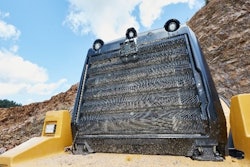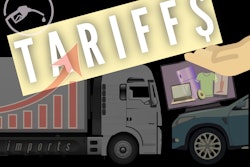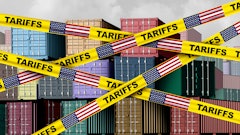
The logistics industry has seen a notable rise in M&A activity recently, especially in the warehousing sector. What was once a business model passed down through generations is quickly shifting toward acquisitions. So, what does that mean for operators?
For those considering mergers or acquisitions, having the right technology in place can make all the difference. Tech capabilities now go beyond improving daily operations, and can be a critical factor in a successful transition. Ready-to-use data enables quicker integration, making your company more appealing to investors and easing the overall process.
To understand the value of technology in these deals, it's important to look at how operational readiness is assessed during due diligence.
The due diligence superpower: Readiness through data
Modern warehouse management systems (WMS) and other logistics tech systems such as transportation management system (TMS), last-mile delivery platforms, IMS and AS/RS all are crucial in determining transition readiness. These technologies provide almost instant access to real-time operational insights, predictive analytics, efficiency benchmarks and historical data and improvements.
Investors and buyers who are trying to evaluate the scalability of an operation need a high level of transparency. Without accessible and credible operational data, financials alone may not be enough to tell the full story.
WMS as a strategic asset in acquisitions
Buyers increasingly value systems that are easily integratable, and often include cloud-based systems because they reduce friction, costs and time in the post-acquisition transition period. As a business owner, presenting the full picture matters, even if you're not directly telling the story. Having accessible records, like customer data, inventory history and vendor SLAs, can make the difference in showing the true value of your business. A modern WMS can help limit or prevent downtime, ensuring operational continuity, faster onboarding for the new owners and merging entities, as well as cross-side data aggregation when consolidating warehouse operations.
Tech fluency signals organizational readiness
Even today, where everything trends toward digital, some companies still operate on paper-based systems. Companies without digitized systems often pose a larger – and more costly – challenge dealing with a workforce that isn’t prepared for a tech-enabled future. Employees who lack familiarity with digital tools increase training costs and can foster a culture of resistance to change. The good news is that you don’t necessarily have to commit to a full tech overhaul to be appealing to buyers. By taking small steps forward in tech advancements, you can show investors that your organization is flexible and willing to adapt with the times.
Key takeaways for logistics operators eyeing a sale or merger
Investing in a scalable, integratable WMS now not only supports daily operations but also positions a business for future liquidity. Waiting until you're in acquisition discussions can delay the process, so be proactive and get operational data ready for due diligence in advance. Focusing on change management and training builds a culture that can quickly adapt to modern systems, while also demonstrating to potential buyers that your company is prepared for the future. The tech stack is an important part of your business's valuation narrative, reflecting long-term enterprise value, not just revenue.
Tech is no longer optional in M&A conversations
A company’s technology maturity can be an underestimated factor in whether a deal succeeds or fails. Operators and owners should treat technology as an investment in long-term enterprise value, not just a means of improving efficiency.
As technology continues to play a larger role in logistics M&A activity, companies that view their systems as long-term investments will be better prepared for successful transitions. Tech not only supports daily operations but also plays a key role in shaping a company’s value and future growth. As the market shifts, businesses that prioritize technological readiness will be in a stronger position to navigate the challenges and opportunities ahead.



















